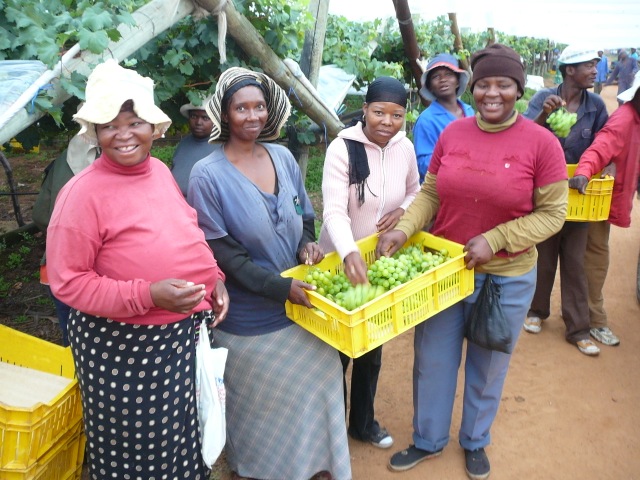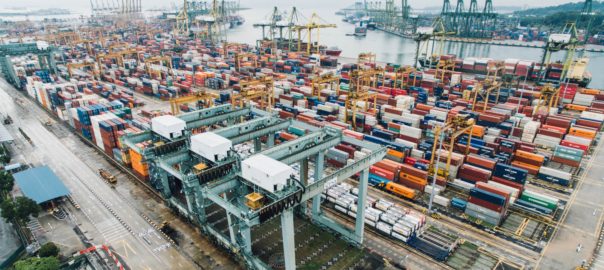State-of-Art review
Still after three UN Conferences on Sustainable Development we are increasingly facing major persistent threats, like poverty, food insecurity, climate change, ecosystems degradation, which despite being known for a few decades are still far away from being solved – or are even still increasing.
On the level of individual business, this has four major implications: increased social pressures; possible reputation damage; exposure to resource wars, and front running competitors adjusting their value chain strategies.
The business world has responded to this with various supply chain governance strategies: both ‘Do It Yourself’ -supply chain management and collaborative approaches, using third party private standards. This ISDRS Thematic Working Group creates a platform for ongoing research in the growing number of private governance initiatives in the global market, creating diverse forms of certification and third party control on implementing sustainable production modes in all steps of global supply chains. It challenges the “creating shared value”-approach, going beyond philanthropy-based CSR, as recently proposed by Porter and Kramer (Porter and Kramer, 2011). It intends, from a developing and a developed world perspective, to share assessments of the uptake and factual impacts of these mainly market based mechanisms.
It is a crucial question if this will be sufficient? At one hand we see a recent breakthrough of successful forms of market and NGO-based private certification approaches (see for an extensive review: Potts et al. 2014; Resolve, 2012; Alvarez and von Hagen 2011 & 2012; von Hagen and Alvarez 2011 & 2012). Yet, there is a critical debate on to what extend these market-based approaches do effectively create impacts at the resource side of many global value chains. These emerging supply chain governance approaches are to a large extent euro-centric (and US-centric), while calls are increasingly heart for a stronger involvement of voices from the supply side into the debates about the design and impacts of these private governance systems.
But one can take the debate also further. Imagine 2024, where will we be in 10 years? Is a rapid and structural transition to a circular and fair global economy possible, using this road of self-governance for products traded in the global economic arena? This will strongly depend on 4 key factors: rapid growth of consumer demand; ‘all-inclusiveness’ of these supply chain governance approaches; successful uplifting production practices of all suppliers; and making them address the major issues of unsustainability. Will such approaches be successfully translated into a new practice of CSR or CSV?
Here we see various serious weaknesses, like the lack of 3rd order evaluation and biases causing the overlooking of some of the more recent issues and less visible supply chains. The challenge is to develop a form of ‘meta’-governance, including new approaches by governments, combining public policy strategies with the demonstrated virtues of self-governance.
We welcome any research, critical review papers and method development addressing one or more of the issues suggested here.
Suggested literature
Alvarez, G. & Hagen, Von, O., 2011. The Impacts of Private Standards on Producers in Developing Countries. Literature Review Series on the Impacts of Private Standards, Part II, Geneva.
Alvarez, G. & Hagen, Von, O., 2012. When Do Private Standards Work? Literature Review Series on the Impacts of Private Standards; Part IV, Geneva.
Hagen, Von, O. & Alvarez, G., 2011. The Impacts of Private Standards on Global Value Chains. Literature Review Series on the Impacts of Private Standards, Part I, Geneva.
Hagen, Von, O. & Alvarez, G., 2012. The Interplay of Public and Private Standards: Literature Review Series on the Impacts of Private Standards, Part III, Geneva.
Porter, M.E. & Kramer, M.R., 2011. Creating shared value. How to reinvent capitalism - and unleash a wave of innovation and growth. Harvard Business Review, pp. 2–17.
Potts, J., M. Lynch, A. , G.A. Huppe, M. Cunningham and V. Voora (2014) The State of Sustainability Initiatives Review 2014: Standards and the Green Economy IISD, 2014
Resolve, Steering Committee of the State-of-Knowledge Assessment of Standards and Certification. (2012) Toward sustainability: The roles and limitations of certification. Washington, DC: RESOLVE, Inc.
Vermeulen, W.J.V., 2010. Sustainable supply chain governance systems: conditions for effective market based governance in global trade. Progress in Industrial Ecology, An International Journal, 7(2), pp.138–162.
Vermeulen, W.J.V. (2015) Self-Governance for Sustainable Global Supply Chains: Can it deliver the impacts needed? In Business Strategy and the Environment, 24(2), pp.73–85. doi: 10.1002/bse.1804
Vermeulen, W.J.V., M.T.J. Kok, (2012) Government Interventions in Sustainable Supply Chain Governance: Experience in Dutch Front-Running Cases, Ecological Economics, Vol. 83 (2012) 183–196 .
